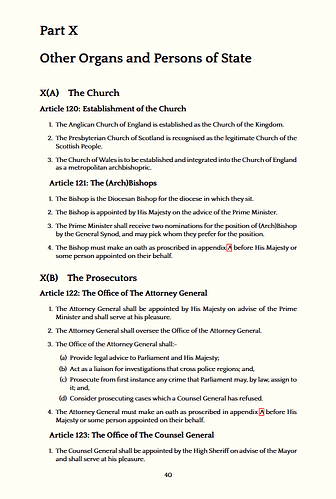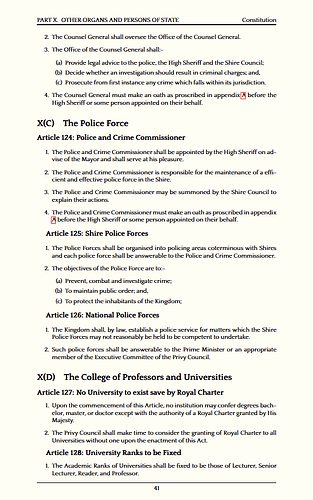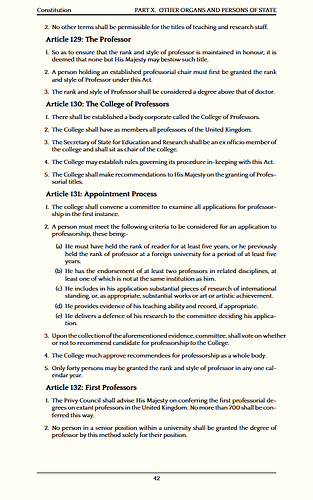Taspher’s Constitution Proposal
This is part of a series of threads I am making which cover the constitution of the UK and how we can fix it. You can find the main page for these threads here.
The Proposal
Explaination
Part X(A): As a Christian country with two established churches, it is important to mention the Church in the Constitution. This entrenches the religious settlement of the country and re-establishes the Church of Wales as a third archbishopric in the Church of England. The CoW was disestablished by Welsh Nationalists and we ought to undo it.
This also established the Prime Minister’s ability to select bishops. Since (I believe) Blair, the PM has given up the right to select Bishops and as aquiessed to the Synodd. If we are to revive the CoE, we need the power to select its Bishops.
Part X(B/C): Mostly self-explanitory.
Part X(D): This bit can maybe go. The reason I add it is because under the Conservatives, they allowed Universities to be set up by anyone and for teaching therein to be of dubious quality. This follows on from the Labourite reforms, making all of the ex-polytechnics universities, and encouraging every Tom, Dick, and Harry to go there. British Universities are fast becoming worthless. Additionally, the title of Professor is being given out too freely and easily these days. As such, it becomes a less valuable title which infers a quality that just isn’t there.
Because I see Universities as vitally important, especially in STEM fields, I think that a tightening of terms and a restriction in the number of universities is good thing. But it may not belong in the constitution.
The other reason for this is to act as an alternative for advisory groups like SAGE. Instead of the Government or Civil Servants selecting who they consider to be experts, allowing all of the peer professors from across the realm come together to give advise seems like a better system.



